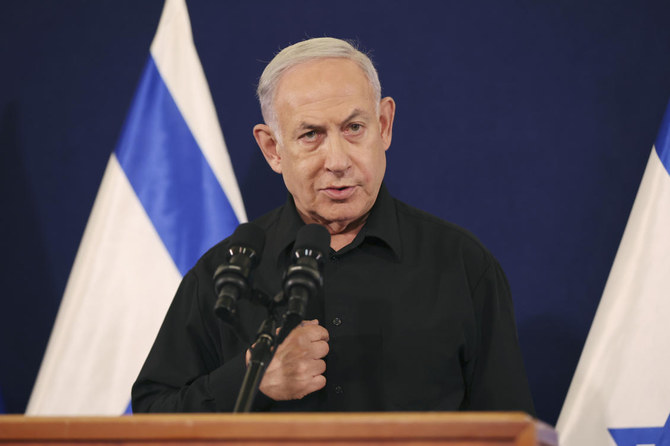
- ARAB NEWS
- 17 Aug 2025

TEL AVIV: The viability of a US-backed proposal to wind down the eight-month-long war in Gaza was cast into doubt on Monday after Israeli Prime Minister Benjamin Netanyahu said he would only be willing to agree to a “partial” ceasefire deal that would not end the war, comments that sparked an uproar from families of hostages held by Hamas.
In an interview broadcast late Sunday on Israeli Channel 14, a conservative, pro-Netanyahu station, the Israeli leader said he was “prepared to make a partial deal — this is no secret — that will return to us some of the people,” referring to the roughly 120 hostages still held in the Gaza Strip. “But we are committed to continuing the war after a pause, in order to complete the goal of eliminating Hamas. I’m not willing to give up on that.”
Netanyahu’s comments did not deviate dramatically from what he has said previously about his terms for a deal. But they come at a sensitive time as Israel and Hamas appear to be moving further apart over the latest ceasefire proposal, and they could represent another setback for mediators trying to end the war.
Netanyahu’s comments stood in sharp contrast to the outlines of the deal detailed late last month by US President Joe Biden, who framed the plan as an Israeli one and which some in Israel refer to as “Netanyahu’s deal.” His remarks could further strain Israel’s ties to the US, its top ally, which launched a major diplomatic push for the latest ceasefire proposal.
The three-phased plan would bring about the release of the remaining hostages in exchange for hundreds of Palestinians imprisoned by Israel. But disputes and mistrust persist between Israel and Hamas over how the deal plays out.
Hamas has insisted it will not release the remaining hostages unless there’s a permanent ceasefire and a full withdrawal of Israeli forces from Gaza. When Biden announced the latest proposal last month, he said it included both.
But Netanyahu says Israel is still committed to destroying Hamas’ military and governing capabilities, and ensuring it can never again carry out an Oct. 7-style assault. A full withdrawal of Israeli forces from Gaza, where Hamas’ top leadership and much of its forces are still intact, would almost certainly leave the group in control of the territory and able to rearm. In the interview, Netanyahu said that the current phase of fighting is ending, but that didn’t mean the war was over.
During the initial six-week phase, the sides are supposed to negotiate an agreement on the second phase, which Biden said would include the release of all remaining living hostages, including male soldiers, and Israel’s full withdrawal from Gaza. The temporary ceasefire would become permanent.
Hamas appears concerned that Israel will resume the war once its most vulnerable hostages are returned. And even if it doesn’t, Israel could make demands in that stage of negotiations that were not part of the initial deal and are unacceptable to Hamas — and then resume the war when Hamas refuses them.
AP